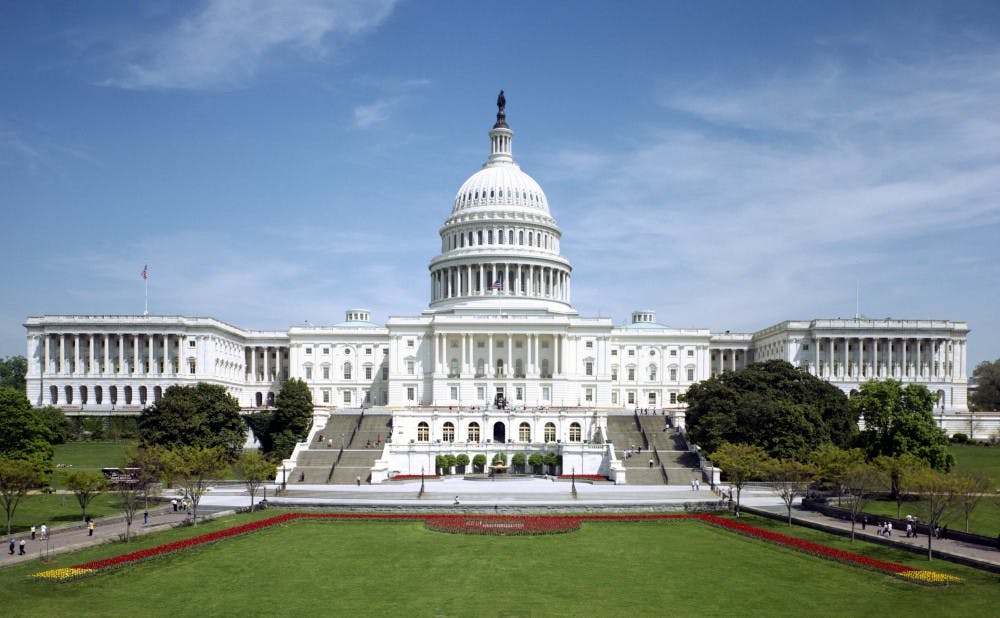At midnight Saturday, the U.S. government shut down because of congressional gridlock. But the world hasn’t stopped turning—mail will still be delivered to the Bryan Center and the American flag is still flying outside of the Allen Building.
So what does the shutdown really mean for Duke students? It depends on how long it lasts, explained Michael Schoenfeld, vice president for public relations and government affairs.
“The longer it lasts, the more likely it is to affect services and programs that could impact students and faculty, such as payments for research grants,” Schoenfeld wrote in an email on Saturday. “And as is always the case with extreme and dysfunctional actions like shutting down the government, there are likely to be unintended and unforeseen impacts.”
For students, there are some key services of interest that could potentially be impacted.
Federal government offices that do “nonessential” services—such as handling passport requests—will begin furloughing employees on Monday, and public attractions like museums and staffed services at national parks may be closed.
Many services, however, are considered essential and will not be affected. The postal service will continue to operate because it does not rely on tax dollars for its daily operations. The military will also continue to report to work, and air travel will likely not be impacted, as air traffic controllers and transportation security officers will remain at work.
For students, federal financial aid has already been awarded for the 2017-2018 academic year so it should not be affected, and most of the federal funding for Pell Grants is mandatory and not impacted by the shutdown. However, Department of Education plans to furlough more than 90 percent of its employees in the first week and investigations into civil rights issues on campuses will be largely suspended, according to Inside Higher Ed.
If the shutdown drags on, the University may begin to feel some institutional effects. For researchers, funding that has already been awarded will continue, but new funds will not be issued.
The shutdown—which resulted because Congress was unable to pass a budget to continue funding the federal government—will last until they are able to pass a bill to fund the government. Key issues in the debate include protections for young undocumented immigrants who have benefited from Deferred Action for Childhood Arrivals—which protects them from deportation—funding for the Children’s Health Insurance Program and border security.
This is not the first time the government has shut down. In October 2013, a government shutdown lasted more than two weeks and resulted in more than 800,000 federal employees being furloughed, according to Reuters. Congress narrowly avoided a shutdown in December 2017, when they passed a short-term spending bill to keep funding the government for another month.
Students and employees can refer to the University’s online resources for updates on federal funding information and the contingency plans released by federal agencies.
And for students who waited in line to snag a ticket for the conversation scheduled for last week between U.S. Sen. Bernie Sanders and Rev. William J. Barber II., one effect of the politics around the shutdown has already been felt. The event was postponed indefinitely because Sanders had to remain in D.C. as Congress tried to broker an agreement to avoid the shutdown.
Get The Chronicle straight to your inbox
Signup for our weekly newsletter. Cancel at any time.
Bre is a senior political science major from South Carolina, and she is the current video editor, special projects editor and recruitment chair for The Chronicle. She is also an associate photography editor and an investigations editor. Previously, she was the editor-in-chief and local and national news department head.
Twitter: @brebradham
Email: breanna.bradham@duke.edu

